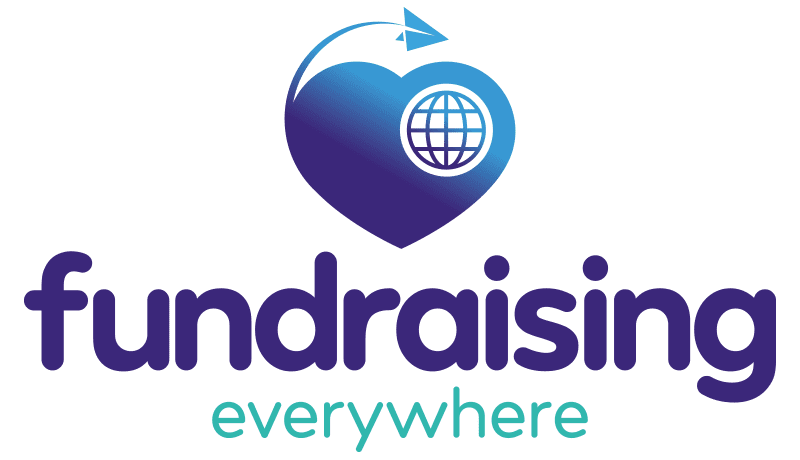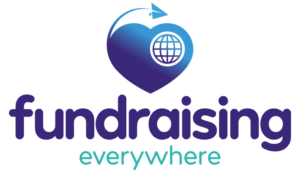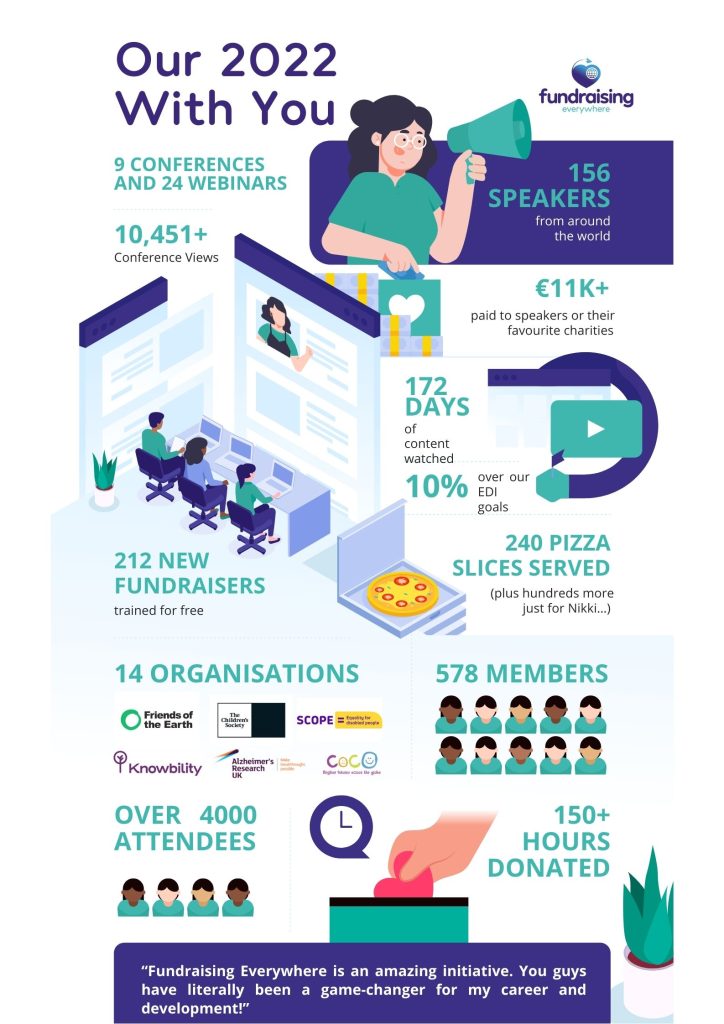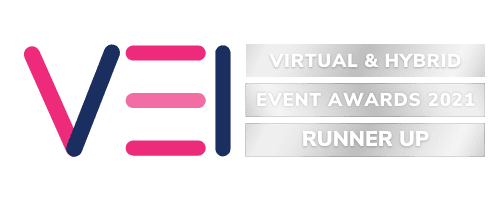
Written by Simon Scriver
The end of AmazonSmile
Amazon has recently announced that it will end its charity donation scheme, AmazonSmile.
It will end by February 20th with some financial assistance given by Amazon to help with the transition.
For the last 10 years, organisations have been able to link to Amazon and earn a small commission on any spending that came through your link.
Like an affiliate scheme, exclusively for charities. There’s no additional cost to you or the customer - it’s just a ‘reward’ that Amazon offers you for bringing them more business.
In theory, Amazon would also bring you new donors - those who found you by searching AmazonSmile - but in reality the chances of this happening were pretty slim.
While Amazon would have you think they’re super generous, the payment comes from their advertising budget - 0.5% is a cheap ad.
It’s one of the lowest-paying affiliate schemes out there.
Still, for many organisations, it’s been an easy win - a steady stream of commission earned from product links (think, for example, recommended books or suggested groceries).
Is this a good opportunity for charities to break up with these kinds of programmes?
Or can a well-used affiliate scheme provide a steady stream of additional income?
Where do you go from here? Even if you haven’t been using AmazonSmile, are the alternatives something you should be exploring?
Well, like everything in fundraising, it depends.
Personally, I think all charities can benefit from a smart partnership with a supplier that brings value to your audience. My first website, a Traveling Wilburys fansite when I was 17, generated a decent amount of monthly income by linking to a couple of music stores that stocked their then-hard-to-find music.
I would earn up to 20% of what people spent - an amount that spiked when George Harrison died and when Roy Orbison’s widow recommended my site.
These days, even Fundraising Everywhere has an affiliate scheme.
A well-placed link to a relevant product is what makes the virtual world go round.
As charities, we’re mindful of our ‘call-to-action’ within any writings, presentations and posts.
What is the logical next step our supporter is going to want to take after this interaction?
A request to donate or volunteer or subscribe is something we’re used to peppering into our communications, and those direct actions should always take priority.
But if that’s not appropriate or relevant enough, an affiliate link can be a perfect win-win-win.
This might be a link to purchase a book one your event speakers just recommended.
It might be a pet food of choice that you recommend to adopting families.
It might be a handy tool that so many of your service users have benefitted from.
It could even be Christmas cards.
Affiliate schemes are a fantastic source of income when the transaction sits logically within the work you’re already doing.
So where to now?
As we say goodbye to AmazonSmile, remember there are more generous solutions out there, like Give As You Live and easyfundraising.
And please do let us know if there are any particular platforms you’d like to see showcased at our FundraisingTech conference.
Also consider Amazon’s regular affiliate scheme Amazon Associates. This offers similar benefits to AmazonSmile but often pays more!
Or negotiate agreements directly with suppliers. These might even include exclusive discounts that you pass on to your audience.
Affiliate schemes can make for a good starter corporate partnership with no initial cost to the company. A relevant, transparent partnership can benefit everyone.
We think that the right partnership can change the world.
If you want to learn more about partnerships that can elevate your charity missions, join us at Corporate Partnerships Everywhere on March 16th 2023.
Corporate Partnerships Everywhere is brought to you in partnership with Remarkable Partnerships (of course!)

Written by Nikki Bell
We’re big on building things in the open and including you in our decisions. So this is our honest review of 2022 before we kick off things for 2023.
This might not be the most exciting read for many of you. But, for transparency, I want it to exist somewhere so you can see behind the curtain.
Before I get into the stats though, I want to say ‘thank you’.
We couldn’t have achieved any of this without you.
Whether you’ve joined as an attendee, have chosen to push your professional development forward with us as a member, shown your support on social media, or partnered with us as a sponsor; it’s all noticed and appreciated.
Thank you! We couldn’t have achieved any of this without you.
Speaker and event EDI: How did we do?
This is something we’ve kept a close eye on in 2022, especially as we’ve handed over more of our event curation to our community.
I’m so happy that we overachieved on our goals to represent people of colour (+15%), people from the LGBTQIA+ community (+24%) and gender representation (63% female / 32% male / 5% trans and non-binary split).
However, there is more to do.
Disabled speakers
We didn’t meet our goals for representation of disabled speakers* (-11%) and I would love to platform more new-to-the-sector fundraisers to make sure we’re hearing more new ideas.
Tracking EDI information
I’m also embarrassed to say that we only started tracking EDI information for attendees in 2022. Considering this is a core reason why Fundraising Everywhere was created, I can’t believe it took over 2 years for this requirement to click and I take full responsibility for that.
The data we do have on attendees is promising and reflects much of what we see in our speakers, with the exception of young people that are better represented within our attendees.
Similar to our speakers, however, our reach to attendees with disabilities is low with just 9% of the 444 responses given* saying they’d consider themselves to be disabled. Our current goal is to reach 19% so there is work here to be done.
How we want to improve in 2023
A priority for 2023 is to understand more about the disabled community within our own and what more we can do to support disabled people to engage with our work.
How we plan to do this:
- Understand more about disability within the UK charity sector; representation, how these people identify, and how comfortable individuals are in sharing this information.
- For new/young voices, utilise our Fresh to the Sector participants for shaping our work and featuring at our events.
- Work proactively with organisations and charities that work with the disabled community.
- Work with people with lived experience, including existing team members, to improve our communications and activities.
Speaker pay
For those of you that have been with us since 2019, you may have noticed the amount we have paid out to speakers has gone down. This is a combination of fewer speakers in 2022 compared to 2021, and many speakers choosing to waive their fees to provide bursaries to events.
*our EDI form is not compulsory. Data reviewed and reported are from people that chose to tell us about their experience.
I’m so happy that we overachieved on our goals to represent people of colour (+15%), people from the LGBTQIA+ community (+24%)
Team diversity
We’re a team of only three people so I don’t want to go into specifics to protect the privacy of my colleagues, but I will confirm that non-visible diversity is strong on team FE.
However, we need to improve visible diversity in the team.
I worked with the belief that using our networks and platform to support the growth of people in our sector was working in an equitable way to create opportunities. However, I understand and recognise that without that representation in the team itself, we are missing out on big talent opportunities - as well as the insight that helps us approach our projects and marketing in an inclusive way. We want to improve this in 2023 and it’s a big priority for us.
In January 2023 we will be reviewing our EDI goals and updating them where needed.
Events and webinars
2022 was a varied year for Fundraising Everywhere events and we’re constantly learning and adapting. Your needs as a fundraiser are constantly changing and it’s important we don’t churn out the same topics and speakers every year for the sake of fitting into a calendar.
It’s exciting to see attendee numbers go up (and that you’re coming back to re-watch after event day!), so we want to make sure that you’re getting what you need at the right time.
Feedback and acting on that feedback will continue throughout 2023 and we’re excited to have you on that journey with us.
The hits
Our top three conferences* in 2022 (in no particular order) were the:
Top webinar topics in 2022 (in no particular order) were:
- Making TikTok Work for Your Charity
- Trusts & Grants Fundraising During the Cost of Living Crisis
- Charities and NFTS: the next step for online fundraising or digital distraction?
Our full programme of 2023 conferences are up on our website so you can book onto those right away. We have kept a couple of conference gaps for anything responsive that pops up and our free monthly webinars are available on a rolling monthly basis.
*based on attendee numbers.
Our top three conferences in 2022 (in no particular order) were the Individual Giving Conference, Legacy Fundraising Conference, and Grants and Major Donors Conference.
The events we need to look at
We tested the very first ‘open mic’ fundraising conference, Over To You, in July 2022 to give a platform without ‘rules’ to people that had something they wanted to say. The content was exceptional, with challenges made and solutions given for improving pathways and inclusivity in our sector. But, attendance was really low. I’m talking under 20 people low.
We know it’s hard for fundraisers to justify taking time away from work when they’re not sure what they’re going to learn but it’s a real shame that an opportunity was missed to really dig into the problems in our sector and work collectively to fix them.
We still believe in this intention but we’ll change how we approach it in 2023 with more structure to support your decisions on where to spend your time.
You might also have noticed that the Small Charity Conference isn’t returning in 2023. This isn’t because we don’t cater for small charity employees - it’s because we don’t want to focus our support for these people into just one month.
Instead, every conference throughout 2023 will include support for small charities and there will be a specialist chat room for any representatives wanting to network and discuss the sessions. This is in addition to the exclusive free workshops held for Members every month throughout the year.
What’s happening in 2023
In short, we’re going to build on 2022’s successes and add more depth to make sure every fundraiser, everywhere, has everything they need to do their job.
In addition to training through our conferences, events and Membership, following extensive chats with our community, we will be launching projects to support our Manifesto.
Here are some other things to look forward to from team FE:
Improved event experience
Attendance to virtual events have increased since 2021 and we want to make sure that every time you log onto a Fundraising Everywhere event you’re completely blown away.
In 2023 we will be:
- Launching a speaker academy to make sure our speakers deliver the right content in the best way
- We’ll work to have event programmes confirmed three months prior to an event
- And, you’ll be able to access the event site and materials from the point of registration
We have already brought in ‘free-choice’ breakout rooms at our live events that enable you to chat with speakers and attendees after every session, certificates to track your progress, and in-person watch parties where you can network in real-life whilst enjoying the virtual conference together in a shared location. We’d love to see more of those in 2023!
As well as the above, we give you the opportunity to rate our conference sessions and give your feedback live so we can keep on improving after every event.
North America
A large part of our community has hailed from North America even from the early days; but the sessions we host and the times we host them aren’t accessible for our Canadian and American friends.
In May 2023, we will be hosting the first North American-specific fundraising conference, using our popular Individual Giving Conference as the topic, with local speakers, partners, and in a North American-friendly timezone.
We’re still in talks with businesses and individuals about co-leading this project (we want the event to be led and represented by local people) so watch this space…
Manifesto Projects
We launched our Manifesto in September 2022 and have spoken to many fundraisers and organisations since.
The final projects are yet to be finalised but it’s already clear that to build a better sector for fundraisers, not only do they have to be skilled and supported, they need to be led by leaders that know what they’re doing and do it in an ethical and empathetic way.
We’re planning a three-pronged approach that aims to support fundraisers through;
- Training, accountability and community
- Supporting their leaders with practical coaching and upskilling in the core leadership essentials
- and, interactive workshops that dig into sector challenges (which will produce support in whatever format is necessary).
We’re big on collaboration so we’re working on bringing in external experts, partner organisations, and even fully funding other people to lead on this work. So if you’re reading this thinking, ‘I like the sound of that’, please get in touch.
Growing our team
What better way to get new and exciting ideas by growing our team!
We’re currently recruiting for a Growth Marketing Executive and have plans to expand with customer experience roles in the future.
We’re investing in our current team by increasing their pay by 10% and working towards full implementation of a 4-day week that sees staff working 30hrs on a full-time wage.
If you’d like to join our team, please get in touch!
We encourage people from all communities to apply for jobs with us. We particularly welcome applications from Black, Asian and Minority Ethnic, disabled, male identifying, trans and young people because we want to improve representation of these groups in our workforce.
We’re currently recruiting for a Growth Marketing Executive and have plans to expand with customer experience roles in the future. If you’d like to join our team, please get in touch!
Giving back to our sector
In 2022 we trained 212 fresh to the sector employees for free, curating a programme of training from our events and webinars that covered the fundraising fundamentals.
We also held free 1:1 coaching calls and Q&A sessions to anyone that needed a bit of adhoc help.
We’re keen to continue this support into 2023 and want to make sure that what we offer and when is right for charities. Your feedback and ideas are much appreciated!
Growing our community
We listen to our attendees and Members. You are our eyes and ears of the sector.
What you tell us shapes what do do, who we platform, and what we provide.
To make sure we include as many voices as possible in these conversations we want to grow our Fundraising Everywhere community and weave you into our activity and curation at every opportunity.
There are many ways you can do this,
- Speak at our events (paid): Share your idea here.
- Join as a Member (individual or bring your whole organisation): Email [email protected].
- Join our team: Find our live vacancy here.
- Give us feedback: Email [email protected] and/or fill in the forms during and after every event.
- Partner with us (we’re being selective with partner opportunities in 2023 - word got out about how awesome it is and we want to make sure our community receives majority non-sponsored content): Email [email protected].
Thank you again for everything. Now, onwards to 2023!
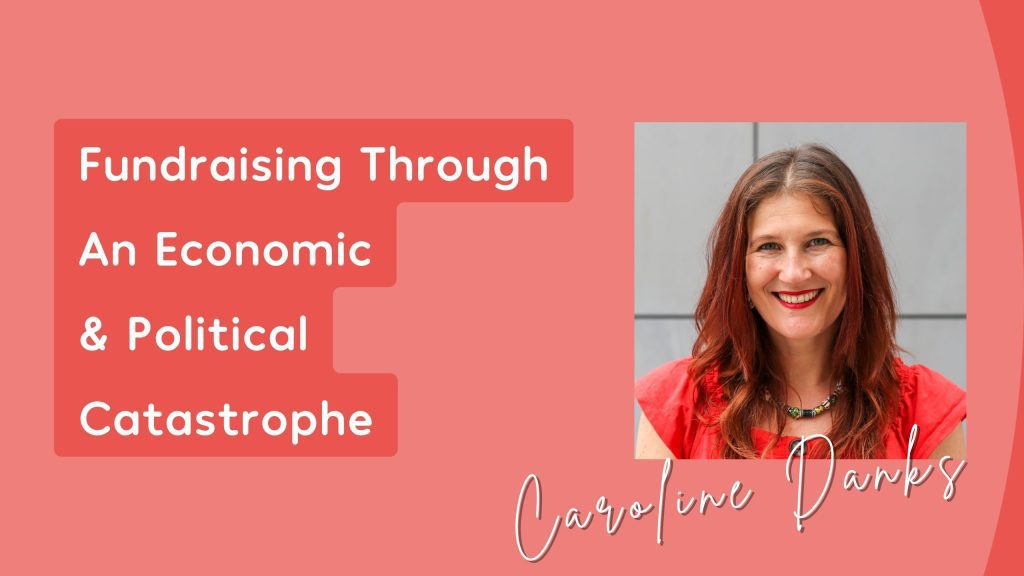
Written by Caroline Danks, Author at LarkOwl.
2010
Early in May 2010, I remember staying up as late as I possibly could, watching the results of the general election.
Being a morning Lark, I think I made it to about 10:10pm. Nowadays my election watching tactics involve an early night and then setting the alarm for 5am…
Labour had been in power since 1997 and the prospect of them remaining in office was slim. People blamed them for the global financial crisis and for the decisions they took thereafter to rescue our banks and to retain funding for public services.
The next morning, I remember Gordon Brown’s desperate efforts to negotiate with members of smaller parties, before giving up and making room for the Conservative / Lib Dem coalition.
Incidentally, the week prior to that night, I had become pregnant (although I didn’t know it yet).
I had a new life on the way, and a new government which would shape the world into which she would be born.
I couldn’t escape a sense of gloom about my new child’s life chances.
Austerity felt like a low point and showed up in many painful and irreversible ways across society. I saw it in my own community too:
- The little independent shops which characterised our small Cornish town started to close.
- The flat I bought in 2007 never regained its value.
- The pastoral care lead at the primary school would routinely buy breakfast from her own money to feed kids coming to school hungry.
2016-2022
In 2016, Brexit happened.
A global pandemic followed (with different rules for MP’s and the general populous it turned out) and then war in Europe. Oh, and apparently there is ‘no credible path to preventing a global rise in temperature of 1.5 celsius.
We’re also on the cusp of an Autumn Statement which we’re told will include ‘tax rises for all and eye watering cuts’. Austerity mark 2?
My daughter is 11 now and it’s hard not to feel despairing about the state of our country and the wider world.
The slow descent of our political system into chaos and corruption and widening wealth inequalities have had a direct impact on the charitable sector – the place where those most in need come when there is no one else to turn to.
I don’t need to tell you how things have been of late.
Put simply, there is increasing need for the services which charities offer, combined with a reduction in the funding available to pay for them.
Charity: just a sticking plaster?
It is my personal belief that for the most part, the existence of charities represents a failure of the state (or course there are exceptions). And although many charities treasure their independence (which I totally get), things like:
- proper, dignified care for older people
- high quality end-of-life provision for all
- schools with sufficient numbers of staff and basic equipment like stationary
- access to food (ideally nutritious, fresh stuff)
- and ensuring that disabled people have the means to power their lifesaving equipment,
really should be part of a modern and civilised society, not optional extras.
When there is less to go around and more people to help, it’s difficult not to feel like the work we do as fundraisers is nothing more than a sticking plaster.
And not even a good waterproof sticking plaster with a fun cartoon character on it.
I’m talking one of those useless sticking plasters which peels off at the first sign of a single bead of sweat.
And what happens when the plaster falls off? It just doesn’t bear thinking about…
I think I’m in a bit of a rut – obsessing over the news and feeling more and more like I’m in a minority of people in this country who think that Boris Johnson looks like ‘he’d be a laugh down the pub’ and that David Cameron was a great Prime Minister because ‘looked good in a suit’.
When there is less to go around and more people to help, it’s difficult not to feel like the work we do as fundraisers is nothing more than a sticking plaster.
Looking to the future
It is not my intention to write a piece which focuses entirely on negativity and I promise not to leave you this way. I’m not convinced I have any answers, but I routinely advise fundraisers that they focus their energies firmly on the things they can’t control (rather than things which sit outside of it) so maybe it’s time I took my own advice.
It’s important to remember that as individuals, we can’t throw all the starfish back into the water.
But those we can throw, will appreciate it. Not only will they appreciate it. They will survive and (with any luck) thrive.
And all the while the system degrades, we will just keep on keeping on, forging partnerships with those who have both the means and the inclination to reject the individualistic / capitalist / growth for growth’s sake and to strive for something fairer.
In the podcast ‘The Rest is Politics’ Alastair Campbell and Rory Stewart were asked (a much more eloquent and better-worded version of) the following question:
How do you not despair when everything’s really depressing?
I stopped and really listened carefully to the answer because it was the question I’d been asking myself:
The answer was simple:
‘You have to find hope.’
It’s really simple isn’t it.
You have to find hope.
Alongside the daily joys of seeing small differences made as a direct result of the fundraising I’ve done, I feel determined to see hope and inspiration (and to shift myself away from the sad sticking plaster metaphor I’d got, well stuck on).
Join me and other, less ranty humans for Fundraising Everywhere’s Grants and Major Donors conference on Thursday 15th December.
My session is a journey from anger to hope. It's a (short) rant about the state of the world followed by some practical advice for continuing a successful fundraising practice, despite the challenges in the world around us.
It’s for tired fundraisers, who still have the spark of a flame inside them and want to do the best they can with what they have.
Key learnings
- Some practical tips for working with trusts and major donors in tough times
- An exercise in identifying what you can control (and what you can't)
- Ideas for wellbeing and not getting caught up in the storm
How do you not despair when everything’s really depressing?
You have to find hope.
Grants & Major Donors Conference 2022
When? Thursday 15 December, 12 - 3pm GMT
Where? Online, so your living room
What do I need? A journal and mince pies
Can I bring an Eggnog? Hell yeah. Or Coquito if you prefer a Mexican variation. Alcoholic and virgin options are both equally welcome.
You can buy your ticket here.*
* This post contains my affiliate link and when you purchase a ticket through my link I may earn a small commission at no extra cost to you.
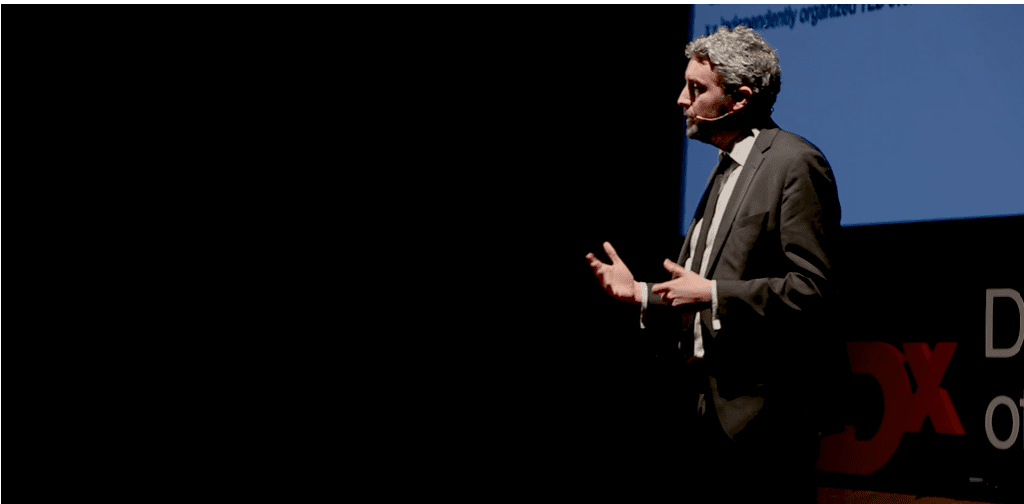
Written by Simon Scriver
The dream: Creating accessible learning for everyone
When Nikki and I launched Fundraising Everywhere in 2019 we wanted to create a fundraising community and training events that were affordable, accessible, engaging and human.
We wanted to elevate speakers to new audiences and give them the same opportunities we had been so fortunate to have had ourselves.
All of the speakers at our first conference were paid.
We did this by securing sponsors and by offering a profit share to everyone involved.
Ever since then we've been very vocal about speaker payments and our belief that conferences should always value the time of the people that make their event a success.
Your speakers need to be paid. If you can't afford to pay people fairly then you can't afford to do it.
Speakers of course don't have to accept payment, but a standard policy of no payment or putting speakers in the awkward position of having to ask for financial support is an outdate practice.
Let me share the journey I've been through as a professional speaker...
My journey as a professional speaker
After several years as a successful fundraiser, I had learnings to share.
My good friends at The Wheel came to me with a chance to share my wins, mistakes and learnings with a room full of charity staff and volunteers.
I was fortunate enough to be paid by The Wheel. I was privileged enough to be in a job where could take time to work on my training session. I had a supportive partner and a supportive board who saw the benefit of my doing this.
Your speakers need to be paid. If you can't afford to pay people fairly then you can't afford to do it.
I was privileged. I worked hard to create an opportunity for myself...but I'm aware no matter how hard some people worked they would never have that same opportunity.
I put the time, money and effort into trying to be a better speaker. I started Toastmasters...a life-changing experience you're probably sick of hearing me talk about. It cost me €5 and a few hours each week.
I continued to deliver training. The majority of the time it was unpaid.
Often there would be a personal cost.
I had to cover my own time.
My own travel and my own expenses.
I was privileged. I worked hard to create an opportunity for myself...but I'm aware no matter how hard some people worked they would never have that same opportunity.
I was fortunate enough to be able to do that. It allowed me to get better and eventually I started to get more and more speaking opportunities.
I've been able to earn a living from presenting and speaking. Despite my overwhelming anxiety and insecurities, I love it. I'm so happy that I've had the chance to become a better speaker, even to the point that I represented UK & Ireland at Toastmaster's world speaking championship (I was disqualified because I went over time).
My first international conference was AFP Congress in Toronto. It's still probably my favourite conference. I'm grateful to the wonderful Amy Pawluk and committee for taking a chance on me, and every year at Congress for the rest of my life I will make a point of thanking Amy.
AFP paid for my travel and accommodation. The trip still cost me money, but I was privileged enough to have the means to cover it.
I've spoken at conferences such as ICON that don't even pay expenses. Their invitation for me to speak cost me approximately €3,000 plus the loss of billable hours.
All of the speakers at our first conference were paid.
The big opportunity gap
The majority of people working in the nonprofit sector can not afford to pay hundreds let alone thousands for speaking opportunities.
As a result, the shareable skills and knowledge of our sector sits behind a gatekeeper.
Potential speakers who can teach us how to be more successful aren't heard because they can't afford to share.
Every once in a while, I'll post on LinkedIn that speakers need to be paid. Every once in a while, someone disagrees, dismisses or calls me naive. They always look like me. Their reasoning generally boils down to the idea that speakers should invest in themselves and that the exposure is invaluable.
Let me attempt to gather all my responses to that fallacy here:
- Start by Googling 'exposure as payment' and look at one of the millions of articles or memes scoffing at this. Then consider that maybe, just maybe you're on the wrong side of history.
- That's a big investment. Even if that €3,000 creates a huge return, most of us don't have that kind of cash lying around.
- Exposure for what? Another unpaid piece of work? At some point someone has to pay...why is it that your conference gets a pass?
- Not everyone needs exposure. Not everyone is an agency, salesperson, or desperately in need of affirmation like you and me. One might even argue that the fundraisers we'd benefit most from hearing are the ones that don't need any exposure because they're too busy working.
- Not everyone wants exposure. Imagine! Your conference tags some poor fundraiser on LinkedIn and one of their major donors see that they're delivering a session titled "5 reasons your donors are like aggressive otters".
Shareable skills and knowledge of our sector sit behind a gatekeeper.
Changing things for the better
Let's face it...expecting your speakers to offer unpaid labour is another outdated practice we've fallen into the trap of accepting because it's always been that way.
Potential speakers who can teach us how to be more successful aren't heard because they can't afford to share.
Our sector suffers because of it.
So let's change it:
- If you're a speaker or potential speaker then know your value. Ask for payment or true value exchange. Tess Nixon Spiller said you need to "really understand what the business development offer is."
- If you're a sponsor then ask if speakers are being paid. If not, why not? Offer to pay more to enable it (Don't worry about the cost...you'll get more exposure!).
- Conferences need to prioritise speaker payments as cost. As Ryann Miller said, "If we want a sector that truly and objectively values its professionals, we need to model the behaviour we identify as having value. Compensation is a key lever to show value."
- If you're an attendee then ask the event organisers what their speaker payment policy is. If you're learning from someone who is relying on 'exposure' then give them that value...put aside some time to look deeper in to what they're promoting or offering.
If you're a speaker or potential speaker then know your value. Ask for payment or true value exchange.
I'd love to hear your thoughts, your own journey and your suggestions.
And if you'd like to chat about sponsor opportunities, speaking opportunities, or any of the work we do at Fundraising Everywhere then I'd love to hear from you.
You can get in touch with me here: [email protected]

Written by Emily Collins-Ellis, CEO of I.G. Advisors.
"Fellowship seeks to bring together fundraisers to #FixTheFlow of resources for good"
Emily Collins-Ellis, CEO, I.G. Advisors
My journey as a resource activist
Recently, we at I.G. Advisors opened applications for our #FixTheFlow Fellowship, and I’m really grateful to Fundraising Everywhere for supporting what we’re doing, and inviting me to share a bit about why we’ve developed the programme.
To do that, I’d like to tell you a bit about my journey as a fundraiser, and as (what I call) a resource activist.
Like many of us, I accidentally got into fundraising.
It was my way of getting into the nonprofit sector, where I felt I would have purpose, and I spent years in Officer, Manager and Trustee roles across small, medium and large charities.
I’ve really seen it all! Unfortunately, I had an immediate ‘in the deep end’ introduction to the major challenges in the profession:
- My targets were always growing, and being set by budgeting and strategic processes that were completely disconnected from what I felt was possible in the market or my portfolio
- I felt immense pressure to meet those targets so as not to put our service users or organisation at risk, which felt really scary and heavy.
- The skills required to fundraise seemed to be simultaneously so basic that Trustees would tell me ‘just read the Sunday Times Rich List’, and so complex that no one could provide me with clear training or guidance.
- Sometimes, I would feel under pressure to compromise my values in the name of bringing in money. For example, by communicating about service users in undignified language to elicit bigger responses from donors; competing with peer organisations in aggressive ways; or rushing relationship building with donors to meet targets.
Even though I did well, I still wasn’t feeling very sure about my role as a fundraiser - I got into nonprofit work to feel connected to a purpose, but I felt stuck churning through transactional relationship building in a silo.
Then, the post-financial crisis austerity policies hit, and decimated the public funding for the work my charity was doing.
Suddenly, it wasn’t a matter of meeting targets for our work, but being part of a sector that was being actively deprioritised by government - it was a survival risk for us all.
My targets were always growing, and being set by budgeting and strategic processes that were completely disconnected from what I felt was possible in the market or my portfolio
And, the funding hole left by this couldn’t be filled by foundations alone - it was bigger than all their endowments put together.
This was the moment where I realised, this isn’t an ‘us and them’ sort of job - where I’m just trying to get money out of people on the other side of the table, and if I do that at enough tables, and do it better than everyone else, it will be fine.
This is when I zoomed out and realised that I was part of a funding system: a big, complex one, where my individual work, and my organisation, were just a part of the picture. I could work harder and do better on my bit of the pipeline, but if the flow of resources from wealth holders, businesses or government wasn’t there, or I was getting those limited resources at the expense of another vital organisation, what good would that do?
That is when I started to see myself as a resource activist. Someone whose job it was to organise giving, redistribute resources, and play a role within the funding system overall. I wanted to champion my causes and the practice of giving, as well as my organisation. And I knew I couldn’t do it alone.
Sometimes, I would feel under pressure to compromise my values in the name of bringing in money
My move to create social & environmental change
And so, I joined I.G. Advisors. I.G. creates social and environmental change by working with the philanthropy, business and nonprofit sectors to develop impact and growth strategies.
We have worked with 170+ organisations and 2,000+ fundraising professionals in 60 different countries, and whilst we’d love to work with everyone on developing organisational strategies, we know not every fundraiser or organisation is in a place where they can access such comprehensive support.
We’ve already responded to that challenge by developing lots of free resources, such as our What Donors Want podcast and Field Guide to Relationship Based Fundraising, but we were hearing from hundreds of fundraisers who want more hands-on support, more ideas, more chances to connect with peers, and more ways to address the challenges of the funding system. And, in the current climate, we know our approach is more vital than ever.
Resources don’t always flow where they are needed most and there are leakages, blockages and cracks across the funding system that are hampering true, long-lasting change.
#FixTheFlow
And so, we have developed, our #FixTheFlow Fellowship programme. This fellowship programme will focus on four levels of impact:
- Individual - where we’ll work with you on your personal development as a fundraiser. Enhancing your craft, your confidence, and your commitment, no matter where you’re working.
- Organisational - where we’ll help you to identify your pain points and goals, and set you up for success when driving fundraising within your workplace, no matter your job title.
- Sectoral - where we’ll bring together cohorts of fundraisers who face similar challenges with misconceptions of their causes, to do action learning together.
- Systemic - where we’ll collectively define the areas of the funding system where we want to #FixTheFlow, and develop collaborative action plans and special projects together.
Like any movement, this fellowship will be what we make of it. We have designed an experience that is not just educational, but transformational.
We feel that people and institutions should be giving more, and giving better. Resources don’t always flow where they are needed most and there are leakages, blockages and cracks across the funding system that are hampering true, long-lasting change.
If you agree, I really hope you will join us for the first cohort of this Fellowship. And I’m excited to meet you when you do.
